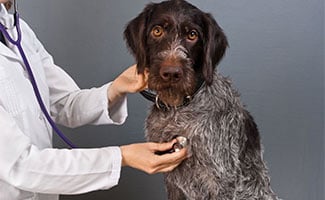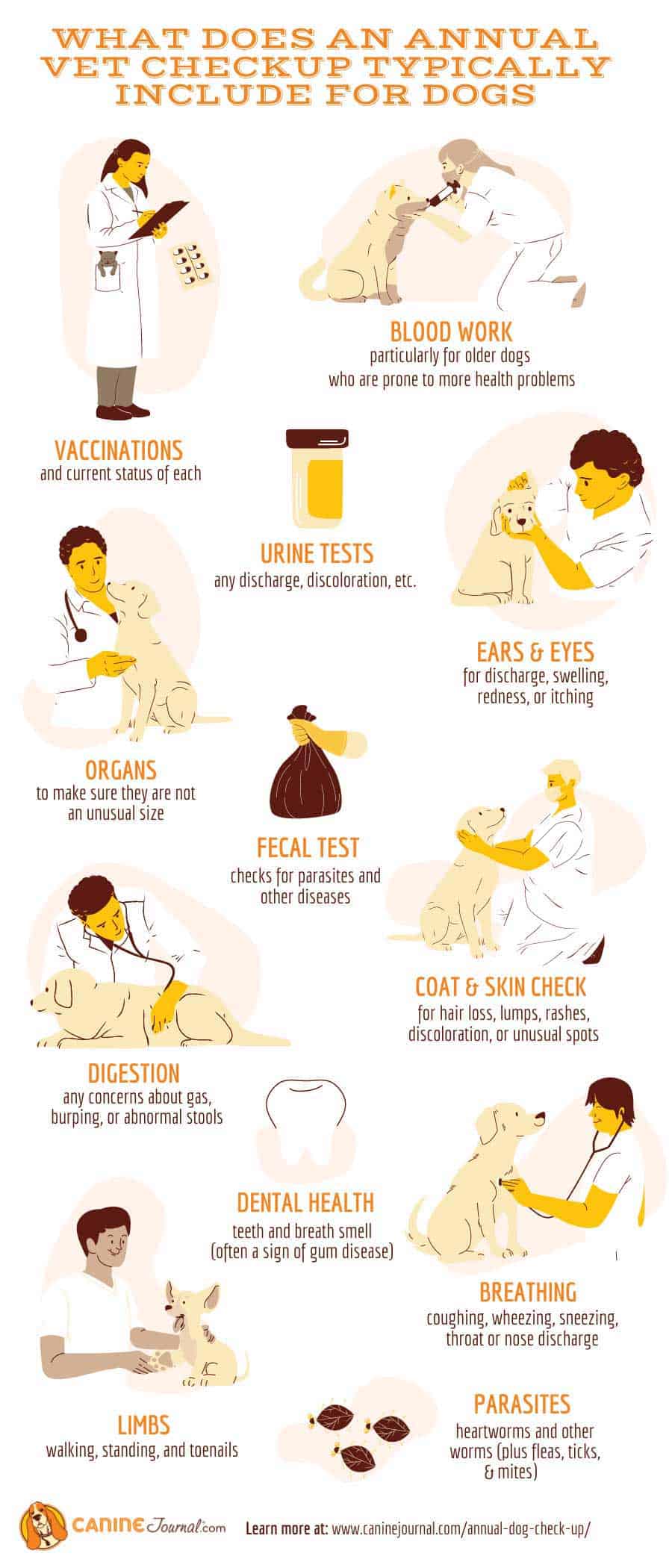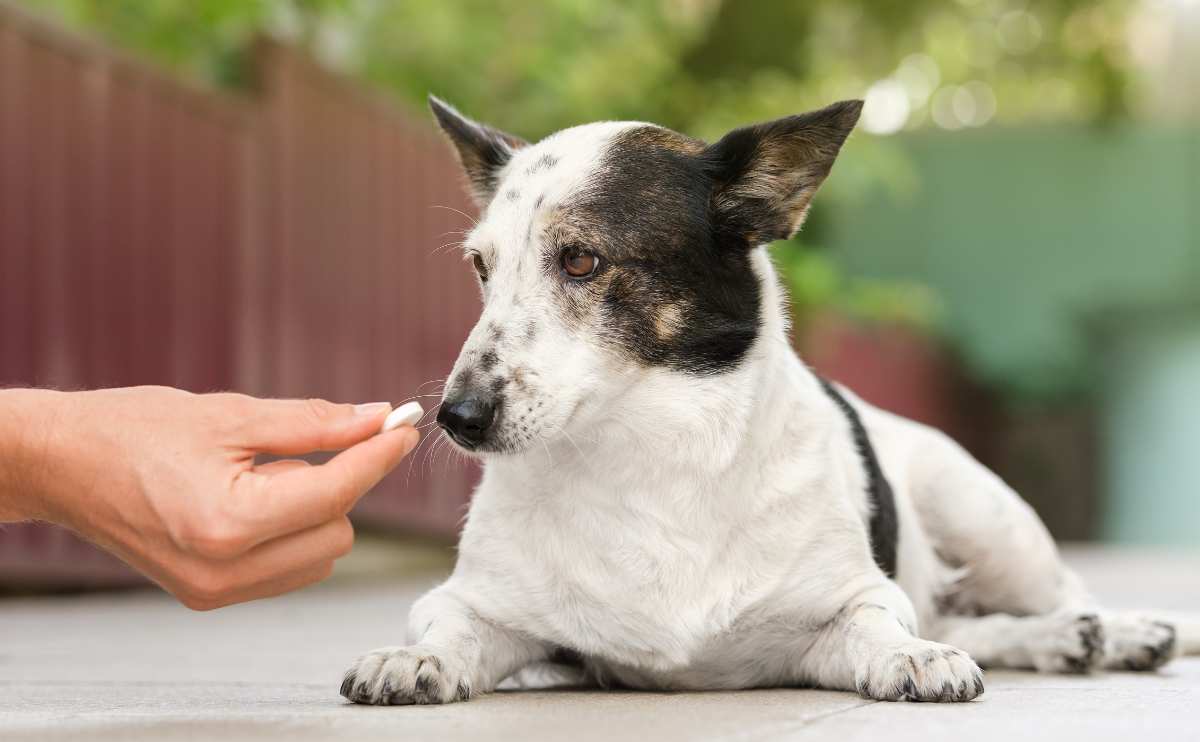When you purchase through links on our site, we may earn a commission. Here’s how it works.

If you have dogs, you may treat them like your children: you spoil them rotten and care for them deeply. Since pets are that important to you, then their health should be just as important too.
We don’t mean just taking them out on walks, feeding them a balanced diet, and pampering good dogs with toys and treats (although those are just as important). We mean being proactive and taking them to the vet regularly for checkups.
Why Do Annual Checkups For Dogs?
Most humans get regular health checkups, so dogs should get checkups too. Preventative care is just as important for pets as it is for their owners. Why? Because vets can help detect (and sometimes prevent) diseases and other life-threatening conditions early on, saving you money and heartache in the long run. Checking with your vet each year makes sure our pet’s vitals are in good shape. Often dogs won’t even show symptoms of a health problem, so it’s best to have a professional assess things just in case.
What To Expect At A Routine Vet Visit

Much like a human physical exam, the vet will ask you a few questions about your dog’s overall eating (food and water consumption) and lifestyle habits (exercise levels and how often). They’ll also take a few measurements, including their weight, and check their pulse.
An annual dog checkup is an opportunity to bring up any questions and express any concerns you have about your pup (if he’s not sleeping well, your dog has discolored poop, etc.). You’re paying for your visit, so you might as well make the most of your time with the expert and ask away. They might also make some suggestions based on their evaluation of your dog and recommend some wellness tips.
What Does An Annual Checkup For Dogs Include?
Here’s a list of specific things the veterinarian might check for during an annual dog visit:
- Vaccinations and current status of each (vaccine guide)
- Blood tests (particularly for older dogs who are prone to more health problems)
- Urine tests and any discharge, discoloration, etc. (You can also do at-home urine tests)
- Fecal tests (typically for puppies)
- Digestion, including any concerns about gas, burping, or abnormal stools
- Coughing, wheezing, sneezing, throat or nose discharge
- Coat and skin check for hair loss, lumps, rashes, discoloration, or unusual spots (learn more about skin infections in dogs)
- Limbs, walking, standing, and toenails
- Ears and eyes for discharge, swelling, redness, or itching
- Tests for intestinal parasites, like heartworms and other worms
- Fleas, ticks, mites (plus flea and ticket prevention)
- Dental health, including teeth and breath smell (often a sign of gum disease)
- Organs to make sure they are not an unusual size
Here’s a graphic summarizing everything that they’ll typically check during an annual exam.

Video: Pet Wellness Exams (What To Expect)
Here’s a quick two-minute video on what to expect from a pet wellness checkup from a vet of over ten years. She’ll walk you through how they check a pup from head to toe to give you a better idea of what to expect at your dog’s checkup.
If all goes well, it’s pretty painless, and you and your dog should be in and out in around 30 minutes. However, if the vet does spot any potential problems, they will discuss the options with you, including further testing and diagnosis.
How Often Should You Do Checkups For Dogs?

It depends on the age of your dog. Puppies grow at a rapid pace and thus require more vaccinations and examination. If your dog is less than one year old, you should expect to go to the vet every few weeks until six months for your pup’s shots and make sure he or she is progressing as expected (much like a newborn).
After the first year, dogs are the equivalent of a teenager or young adult. They grow at a much slower pace, so they only need visits annually for any necessary vaccines and routine checkups. Like people, older dogs may require more frequent monitoring since they have more health issues as they age. If your dog is older than seven, you may want to discuss with your vet whether you need bi-annual visits.
Your dog’s size also determines how quickly he or she ages and thus how much attention they need. Larger dogs age more rapidly than smaller dogs. Big dogs are also usually more active so they likely have more risk for physical injuries and exposure to pesticides and bacteria outdoors.
Finally, a dog’s breed can also affect the frequency of vet visits. Specialized breeds like bulldogs are at a higher risk for health conditions (whereas a mutt is less susceptible).
A good rule of thumb is:
- Puppies up to 16 weeks: every 3-4 weeks for vaccines and health
- Puppies 6 months old: dental checkup for adult teeth (learn more about puppy tooth loss)
- Dogs 1-7 years old: once a year (at a minimum)
- Senior dogs 7-10+ years old: twice a year if your vet agrees this is necessary, otherwise once a year
Vet Checkup Cost

You might be thinking, “This all sounds great, but how much will it cost?” While it might seem costly to do vet visits so frequently, most dogs only live 13 years on average, so you won’t be paying for too many preventative care checkups over the lifetime of your pup. Plus, those checkups could add years to your dog’s life and potentially save you from more significant issues (and bills) in the long run.
As for individual treatment costs or office visit fees, call your local vets for more details as prices vary significantly by location. You can also learn more about the average cost of vet care and common expenses.
How To Save Money On Checkups For Dogs

If you don’t already have pet insurance, you should look into getting it to help you save on unexpected pet costs in the future like surgeries and medications. In addition to accidental and illness coverage, some pet insurance companies also offer wellness plans, including annual dog checkup costs.
And remember that a yearly exam fee is a small price to pay to potentially save you thousands down the road and extend the life of your pup.
A Healthy Dog Is A Happy Dog
Your dog’s health does affect their overall well-being, which in turn can have a positive impact on you and your family. So make the investment, and your dog will thank you (and you’ll thank yourself) later.
Hopefully, we’ve covered everything you ever wanted to know about annual checkups for dogs and how a yearly vet visit can help keep your furry friend’s tail wagging. There are other ways to be proactive, like brushing your dog’s teeth regularly. A home dog DNA test and allergy test can also help you detect potential health risks as well.
Tagged With: Preventative, Vaccinations

